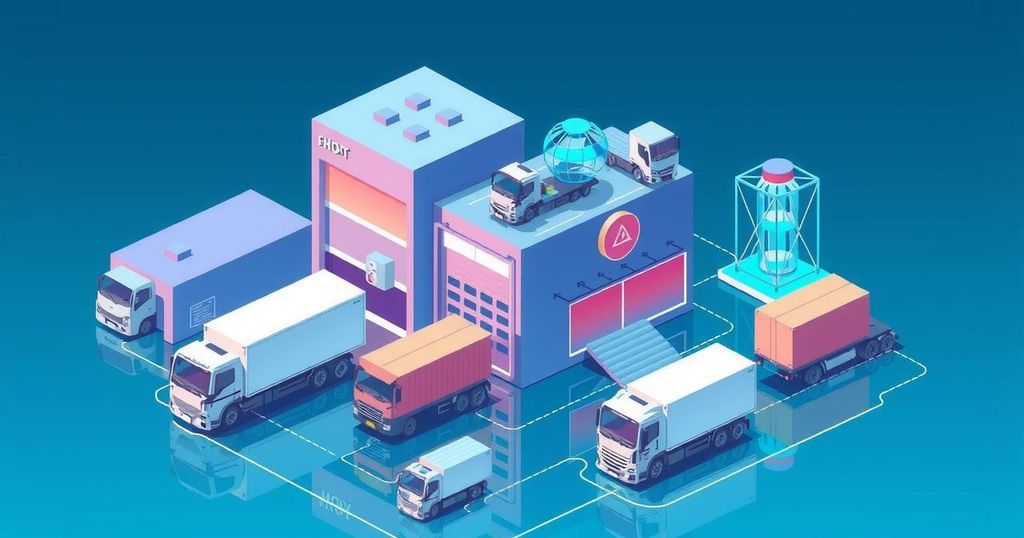Leta Secures Funding to Transform Logistics and Reduce Costs in Africa

Leta, a Nairobi-based startup, is revolutionizing logistics in Africa by using AI to optimize delivery routes and reduce costs, securing $5 million in funding. It integrates seamlessly with existing business systems to enhance efficiency and plans to expand its services into financial offerings. Currently powering over 35 businesses, Leta has exhibited rapid growth and aims to double its revenue as it expands across the continent and beyond.
African businesses encounter exorbitant transportation costs, often up to four times the global average, substantially inflating prices for essential goods such as food and medicine. Logistics constitutes a remarkable 75% of product costs across the continent, as reported by the African Development Bank (AfDB). Many businesses continue to depend on traditional logistical methods, resulting in delays and inefficiencies.
Leta, a Nairobi-based logistics software-as-a-service provider, aims to alleviate these challenges. Its AI-powered platform facilitates route optimization, real-time shipment tracking, streamlined payment processes, and insightful shipping analytics, thus helping businesses transport goods more affordably and efficiently throughout Africa. Recently, Leta secured $5 million in seed funding, led by Speedinvest, with support from Google’s Africa Investment Fund and Equator.
Previously, in November 2022, Leta received $3 million in pre-seed funding from various local investors; these funds were utilized to strengthen operations within its primary markets: Kenya, Nigeria, Uganda, Zambia, and Zimbabwe. Founder and CEO Nick Joshi emphasized that Leta’s load and route optimization technology enables clients to enhance efficiency, thereby reducing fleet sizes and distribution costs.
The platform integrates directly with existing business systems, pulling live order data to determine the most suitable vehicle for each order. This approach replaces outdated manual and intuition-based dispatching methods with systematic loading strategies, including first-in, first-out (FIFO) and last-in, first-out (LIFO) methods. Subsequently, it automates the processes of manifest creation and dispatch planning.
Leta’s advanced real-time mapping capabilities significantly benefit its operations. Notably, Joshi noted that Google Maps has not updated certain areas of Nairobi since 2022, while Leta’s platform constantly refines its road and address data sourced from active customer deliveries. This continuous improvement is vital for enhancing route reliability and operational efficiency.
Furthermore, Joshi envisions extending Leta’s software platform to incorporate financial services, currently piloting products such as fuel cards and asset financing options. Deepali Nangia of Speedinvest praised Leta for its innovative combination of logistics and fintech, facilitating new business opportunities across the region. Likewise, Equator’s involvement is attributed to Leta’s potential to reduce fleet sizes without sacrificing delivery capabilities, which contributes to environmental benefits.
Currently, Leta operates with over 35 major clients, including prominent brands like KFC and Diageo, optimizing more than 10,000 daily trips across its key markets. The company has experienced exponential growth, evidenced by increasing deliveries from 500,000 to 4.5 million, and vehicle management expansion from 2,000 to 7,400. As a result, revenues have escalated fivefold, with future plans to double revenue as it expands into additional African and Middle Eastern markets.
Unlike the asset-heavy strategies of earlier logistics startups, Leta differentiates itself by solely offering software solutions, partnering with existing fleet owners to augment efficiency. Joshi alluded to the lessons learned from the first generation of logistics startups, suggesting that the market is now ripe for innovative solutions that meet evolving needs.
In conclusion, Leta exemplifies a transformative approach to logistics in Africa by leveraging artificial intelligence to optimize delivery processes while addressing high transportation costs. The company has successfully attracted significant investment, expanded its client base, and significantly increased its operational capacity. By focusing solely on software solutions, Leta positions itself strategically within the logistics sector, paving the way for enhanced efficiency and reduced environmental impact as it expands into new markets.
Original Source: techcrunch.com







